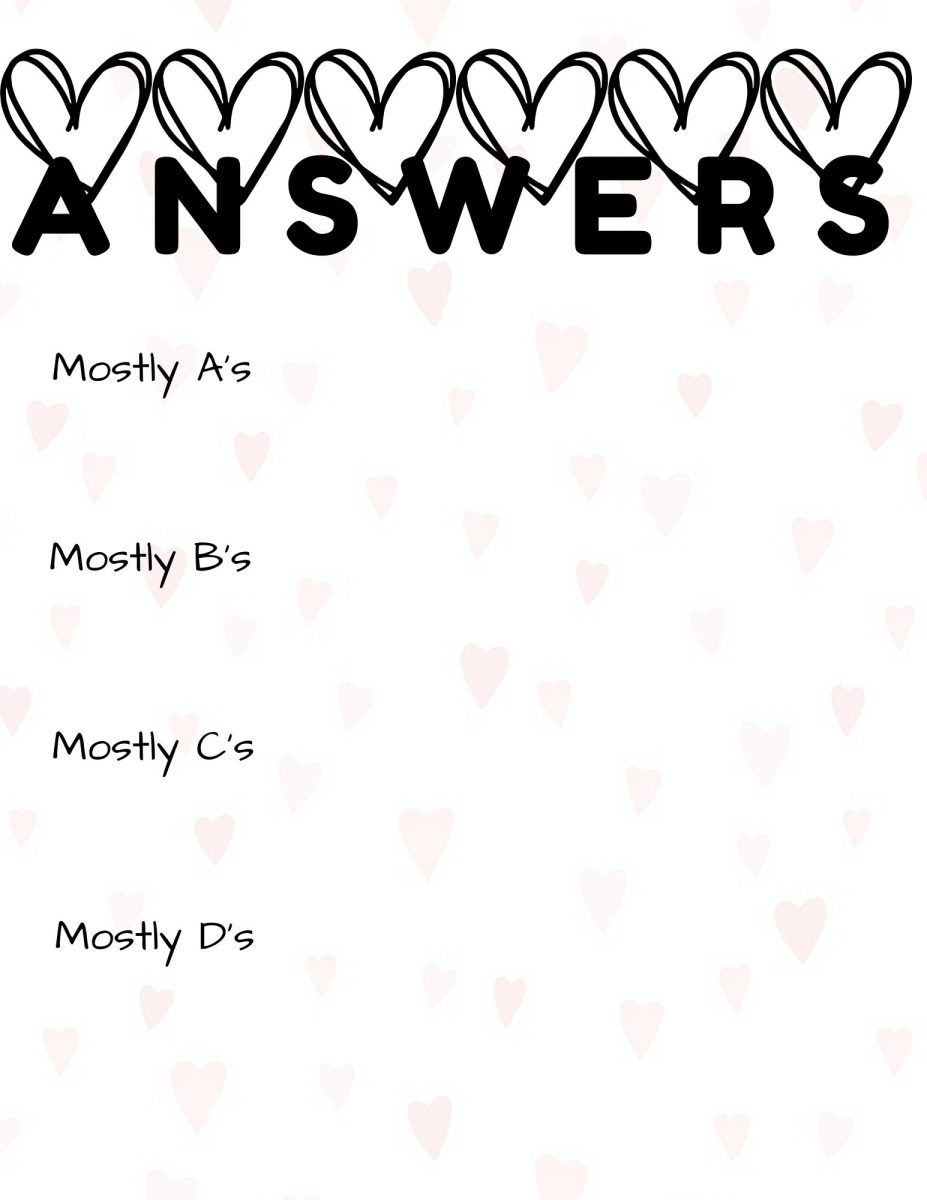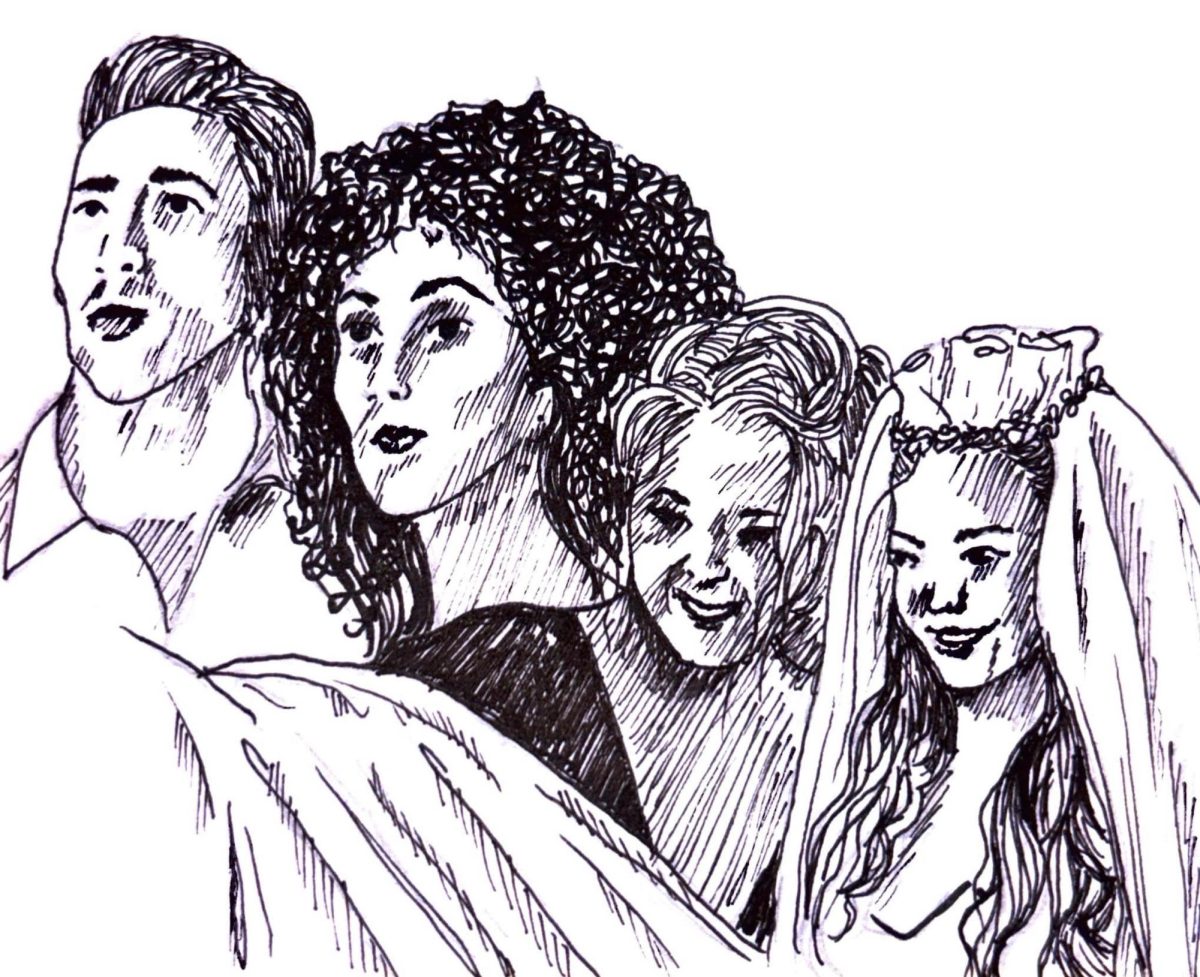Illustration by Ren Rader
Valentine’s is the perfect time to romanticize our relationships. Look past all of the struggles we encountered together and celebrate the love you two share. It’s okay that you always fight, constantly feel guilty for something or that you hide all aspects of your relationship from friends and family. If you told them about the fights they would pass judgment and misunderstand. Your partner is a net-benefit to you. All of the negative is irrelevant because … what would you do without them?
If any of this resonates, I urge you to reflect on the healthiness of your relationship. Abuse is not always obvious to us: In particular, emotional abuse can fly under our radar. The media often depicts physical abuse and models emotional abuse as normal. It is already hard to admit that you’re experiencing abuse, and even harder if you don’t recognize your partner’s behavior as abusive. Below are few signs to look out for:
Your partner gaslights you
Your partner makes you doubt your own understanding of reality. They manipulate you into favoring their perspective. It may evolve to the point where you question your point of view without your partner even prompting you to. Even though you clearly remember what your partner said, they might deny again and again that they ever said that. Gaslighting is often a slow process. The manipulation at the beginning of a relationship is subtle. As time goes on, you become more and more dependent on your partner’s perception of reality. Eventually, your reality becomes what your abuser says it is.
You constantly apologize despite having done nothing wrong
Do you find yourself apologizing even though your partner is the one who hurt you? Over time it can feel like you are inconsiderate, stupid or selfish. You can never do anything right. It is natural to make mistakes in a relationship, but it is suspicious when all arguments become your fault or you take the blame for things that you did not do. Similarly, you might feel sorry for your partner at inappropriate moments. It is easy to excuse bad behavior because they have past trauma that makes them act badly. It isn’t their fault they are like this! Let’s make this clear though — we can extend empathy to our partners for their trauma, but it is never an excuse for them to treat you badly. Just because your partner’s ex cheated on them doesn’t make it acceptable for them to be possessive, for example. No amount of your love and generosity is going to fix your partner.
You walk on eggshells around your partner
Do you have a list of topics you know to avoid or subjects you hope friends and family don’t bring up in front of your significant other? If you can just avoid these topics then you won’t fight. The list of what to avoid is short at first, then as your relationship evolves it becomes longer and longer. You have to edit everything you say to your partner. You should not have to worry that everything you say is going to make your partner fly into a rage or cause an argument. In relationships where people have to edit everything they say, it causes the victim to lose their authenticity. They lose the ability to express themselves freely, which is a valuable element in a relationship.
Love bombing
The affection of your partner is unpredictable or they might make up for an outburst by “love bombing.” This term refers to the period of time after an argument or point of conflict where your partner showers you with affection. They are trying to make up for the fact that they acted inappropriately. This time period might make you think they would never hurt you again. This is another tool of manipulation — just because there are moments of happiness, it does not make up for their abuse. Relationships should not be a rollercoaster with extreme highs and lows. A healthy relationship will have its ups and downs but should not have constant and drastic fluctuations.
This list is not exhaustive of all the different ways people experience abuse. People can exhibit unhealthy behaviors and not be abusive, but if the behavior is constant and escalating reach out for help. If any of this resonated, I recommend checking out One Love, an online resource where you can read more about healthy and unhealthy relationships, and they can direct you to where to get help. Remember that it is not only not your job to “fix” your abuser, but it also is not possible. It is your job to look out for yourself.





